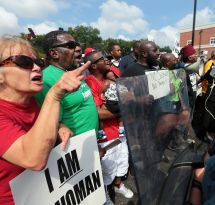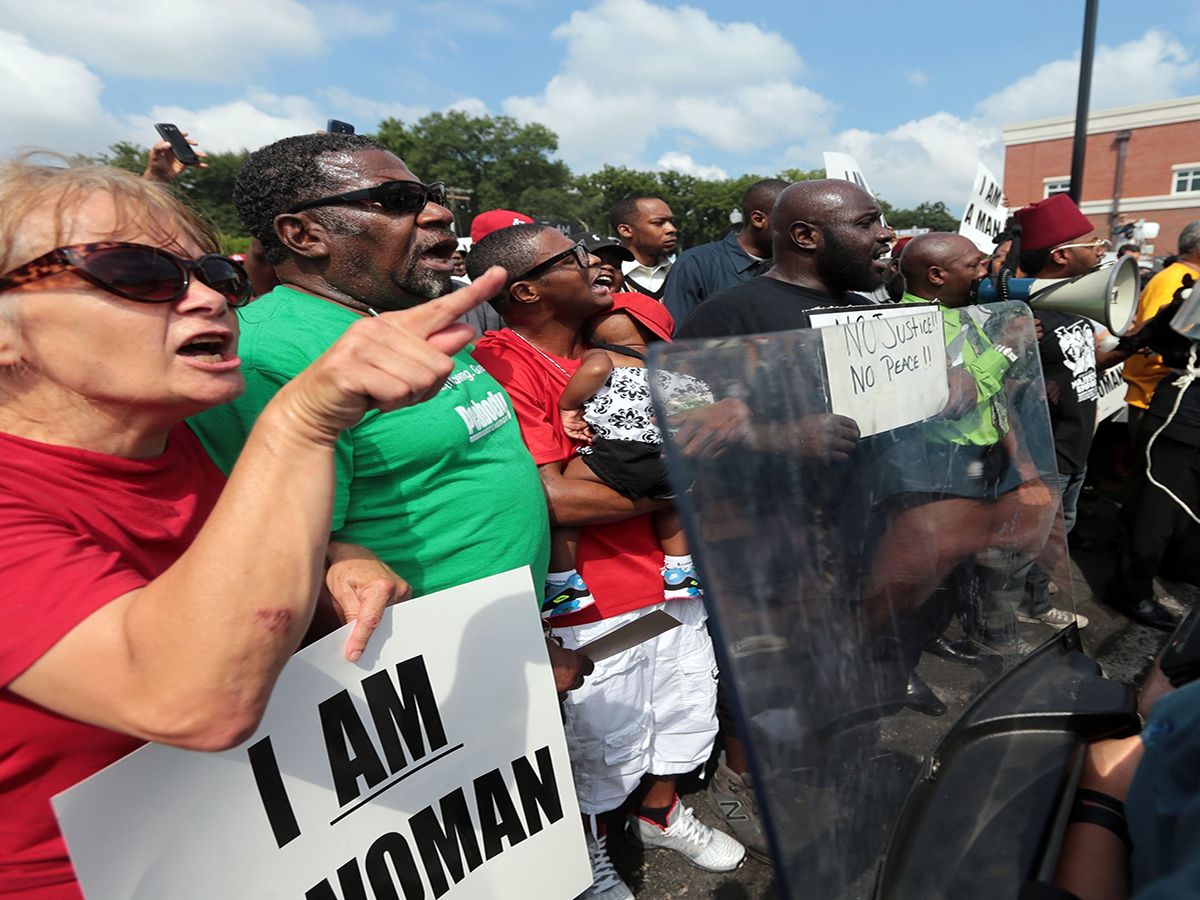
As a racially equal nation, Americans are taught that the police enforcement is here to serve and protect us.
However, numerous events in history have shown our protectors have used excessive force on innocent victims. According to Policemisconduct.net, from Jan. 2010 to Sept. 2010 there was 3,814 reports of police misconduct and out of those reports, there were 193 fatalities.
Police in these circumstances have often said that they are just doing their duties. These circumstances have caused a national outrage, which has citizens debating whether these acts are considered police brutality or mere completion of their training and self defense. Over the past few months there have been numerous accounts of police brutality in America. One of which was the death of Eric Garner in Staten Island due to an unlawful chokehold from an officer. 22-year-old Victor White III was also a victim of police brutality. White was handcuffed by police and thrown into the back of their car due to his possession of marijuana. While in the back of the car, police reportedly said that White supposedly shot himself in the back while handcuffed.
Nearly all the incidents of police brutality have shown strong backlash. However, none have been as monumental as the death of 18-year-old Michael Brown from Ferguson, MO who was killed by Officer Darren Wilson on Saturday, Aug. 9. While there is no concrete evidence to explain what happened on that late summer afternoon, there are two sides of the story.
Brown’s party says that he was surrendering prior to being shot multiple times, while Ferguson Police stand by the story that Brown initiated an altercation with Wilson according to cnn.com.
Dr. Joseph Fitzgerald, assistant history professor at Cabrini, believes that there should be no judgements made about the case as of yet.
“A fair and full investigation hasn’t been completed and submitted for public review. Consequently, we cannot claim that this is a case of excessive force by the Ferguson police department,” Fitzgerald said. “At the same time, I do support fair and timely punishment of law enforcement officers who have been determined to have violated a citizen’s rights to life and due process, among other rights.”
In light of Brown’s death, there has been widespread riots in Ferguson, MO. People have looted stores, destroyed homes and turned over cars. The destruction and violence of these riots have caused Ferguson police to place curfews.
“I don’t consider the recent upheaval in Ferguson, to have been riots. I think it is more like a small-scale revolt,” Fitzgerald said. “Revolts are common expressions by communities which believe they have been oppressed and where one type of occurrence can become a catalyst for large-scale demonstrations.”
Some have speculated that this case could be a cause of not only police brutality, but a case of racial profiling. However, there has not been enough evidence to support the theory of racial profiling, but that does NOT stop Americans from defending the idea.
“The city’s highly militarized police force used disproportionate responses to citizens who had been exercising their constitutional rights to free speech and assembly to protest a police officer’s killing of Michael Brown,” Fitzgerald said. “The revolt occurred after the police response.”
With this being said, our freedom should never be compromised by the actions of our law enforcement if innocent. We must figure out ways to settle these issues because as Americans we shouldn’t have to fear for our lives if we are innocent.
“Americans from all walks of life are engaged in this conversation and many are also discussing the racial police dynamics,” Dr. Fitzgerald said. “Because of this I am optimistic that more racial reconciliation can occur in Ferguson and throughout the rest of America.”



